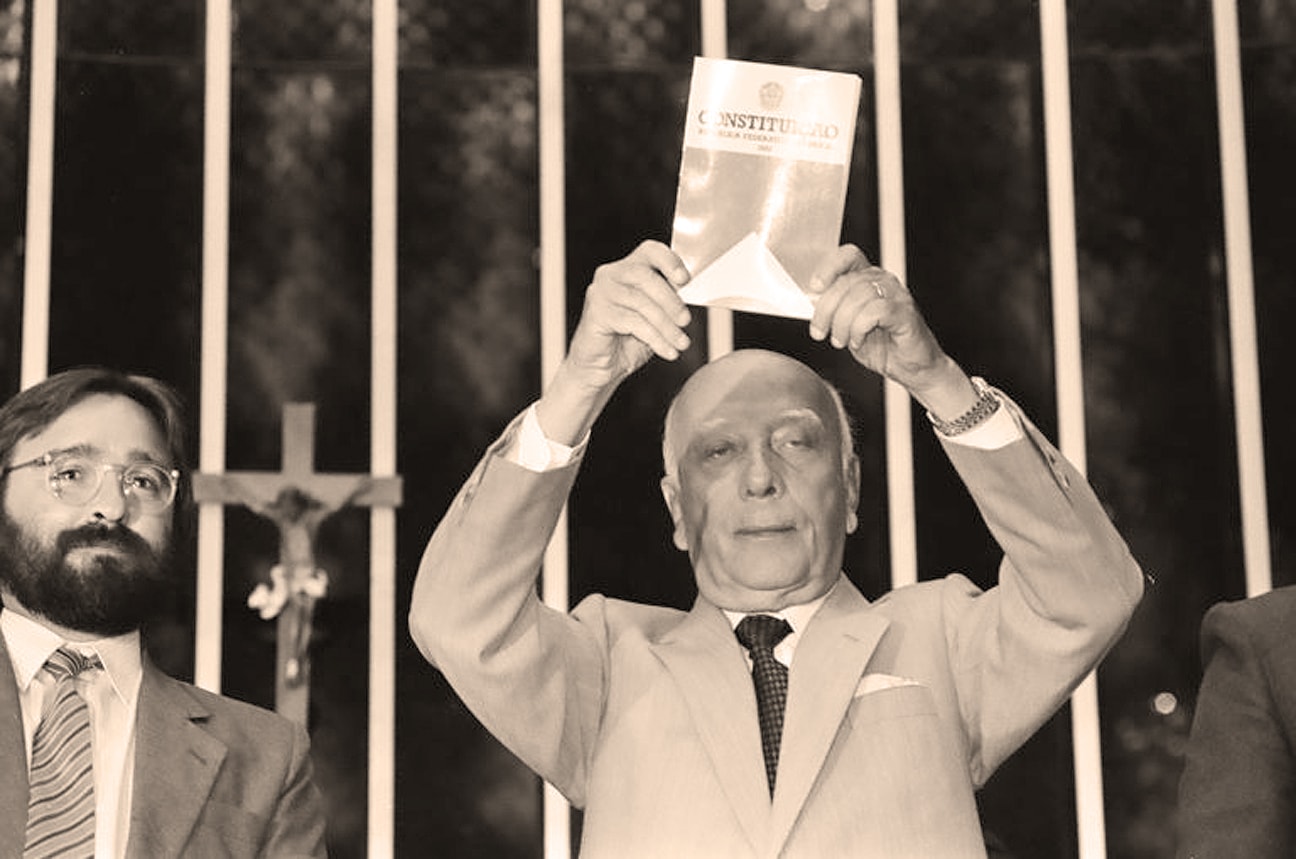The fruit of the re-democratization process that brought to an end 21 years of dictatorship (1964–1985), the Brazilian Constitution is celebrating its 35th anniversary this month. In force since October 5, 1988, it is the seventh constitutional text promulgated since 1824, when Emperor Pedro I imposed his first set of laws on the country.
Even though the text approved by the constituents has already undergone 143 changes—131 through regular amendments, six through amendments approved in the 1994 constitutional revision, and another six due to Brazil’s adherence to international human rights treaties—the current Constitution is the second longest-lasting since the republic was proclaimed in 1889, behind the second Constitution, in force for 43 years (1891–1934).
The document is commonly dubbed “the Citizens’ Constitution,” as it expanded civil liberties and individual rights, established the state’s responsibility to guarantee them to all citizens and defined Brazil as a democratic state based on national sovereignty, human dignity, political pluralism and the social values of work and free enterprise.
 “The 1988 Constitution is the fruit of re-democratization and the establishment of the country’s democratic order,” commented Rosa Weber, former chief justice of the Brazilian Supreme Court shortly before retiring from the Judiciary in September.
“The 1988 Constitution is the fruit of re-democratization and the establishment of the country’s democratic order,” commented Rosa Weber, former chief justice of the Brazilian Supreme Court shortly before retiring from the Judiciary in September.
Popular participation
Another reason why the 1988 text should still be referred to as the Citizens’ Constitution, after three and a half decades of profound social and cultural changes, is the fact that grassroots groups participated in its drafting in an unprecedented way.
In the regulations governing the activities of the Constituent Assembly, the members of parliament stipulated, among other things, that the constituents should welcome and examine suggestions from state and municipal legislative bodies, as well as associations and courts. It also recommends that they consider popular amendments with over 30 thousand signatures from Brazilian electors and those backed by at least three organizations.
One hundred and twenty-two popular amendments, which together received around 13 million signatures, were presented to the Systematization Commission. Eighty-three of them met all requirements, but only 19 received a favorable opinion and became part of the Constitution, resulting in the approval of major legal tools, such as the one allowing organized society to propose a bill to the Brazilian lower house.
Facts to highlight about The Constitution
• Right to education
The 1988 Constitution established the education as a right for all and a duty of the State. Furthermore, the Magna Carta determines that primary education must be mandatory and free.
• Guarantee of human rights
The Brazilian Constitution is one of the most advanced in the world in relation to the protection of human rights. The document guarantees, for example, equality between men and women, freedom of expression, freedom of religion and the right to housing.
• Separation of powers
The Federal Constitution establishes the separation of Executive, Legislative and Judicial powers. This division of functions is fundamental to guarantee democracy and transparency in public management.
• Re-election amendment
In 1997, a constitutional amendment was approved that allowed the re-election of presidents, governors, and mayors. The measure was quite controversial and generated criticism for enabling perpetuation in power. Fernando Henrique Cardoso, who was the President when the amendment was enacted, was investigated for allegedly buying votes to get the law passed. The inquiry was just protocol. It came to absolutely nothing. Mr. Cardoso always denied the accusation. He launched his candidacy for re-election the day after the law was enacted. He won and rule Brazil for four more years.
Fonte: Agência Brasil and Poder 360



